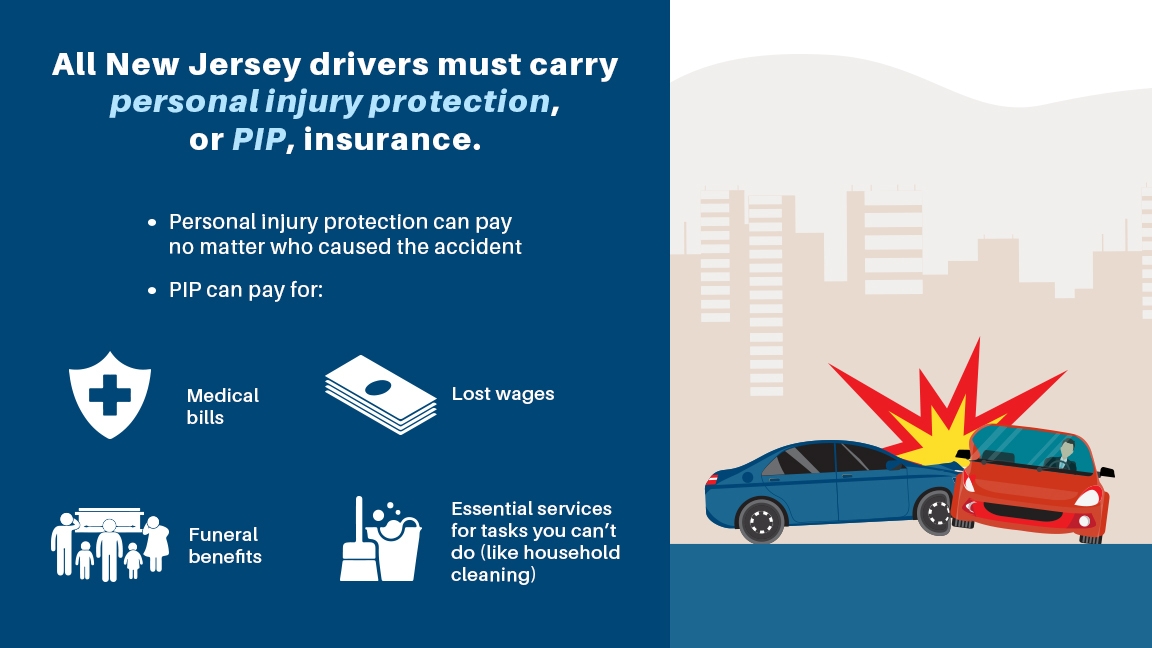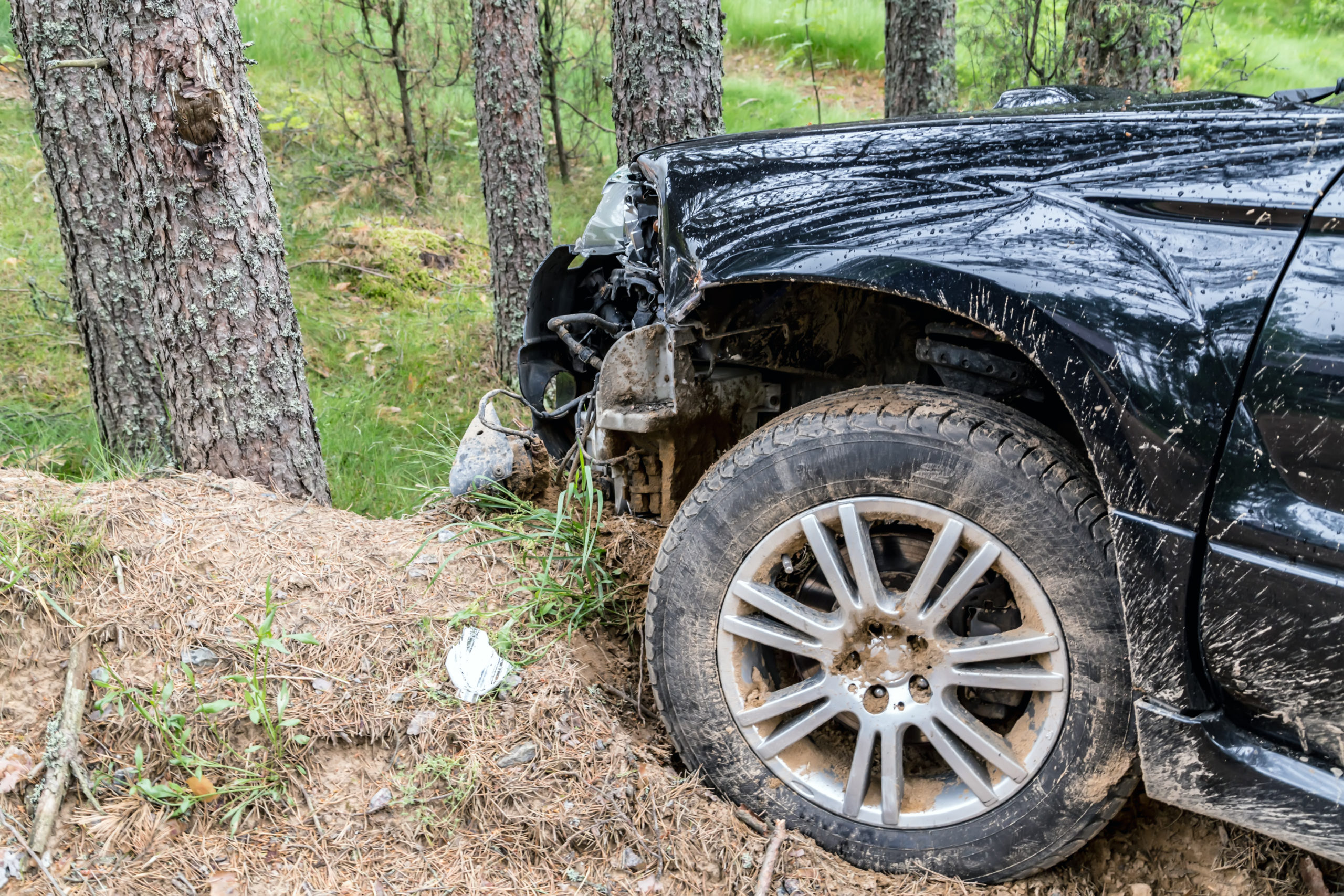
New Jersey’s car insurance system is unlike most other states in that it is a no-fault system. In many other states, the insurer for the driver at fault is expected to cover all injuries in an accident, but New Jersey requires car insurance policies to include Personal Injury Protection (PIP) coverage. The first source of compensation for any injured driver is their own policy’s PIP coverage.
While no-fault coverage means there’s less of a need to determine fault in minor accidents, the no-fault system has some complicated features of its own. For that reason, it’s still a good idea for anyone who’s been injured in a car accident to contact a lawyer before accepting any settlements.
When Are PIP Benefits Available?
Personal Injury Protection, sometimes called Medical Expense Benefit (MEB), is a type of coverage every car insurance policy in New Jersey is required to include by law. Any time the insured person or one of their dependents gets into a car accident, PIP benefits become available to cover the economic costs of the injury.
PIP benefits are available in virtually any accident involving a car. New Jersey Statute 39:6A-4 requires insurers to pay any time the policyholder or any member of the policyholder’s household is injured “as a result of an accident while occupying, entering into, alighting from or using an automobile, or as a pedestrian, caused by an automobile.”
This language is extremely broad, covering any accident involving the use of a car, even if the policyholder is a pedestrian who is struck by a car.
Courts have also interpreted the language broadly, finding coverage in situations that most people would probably not expect.
For example, in the case of Stevenson v. State Farm, a court held that a person who was shot while being carjacked was entitled to PIP benefits. The court reasoned that while a carjacking is an intentional act, it is still an accident from the standpoint of the driver and is therefore an accident for purposes of PIP coverage.
In another case, Ohio Casualty Corp. v. Gray, a driver received PIP benefits after he was injured by a shopping cart that blew into him while he was inspecting damage to his car. The court determined that inspecting damage to one’s car and moving shopping carts to avoid further damage counted as use of the car, so it reasoned that the accident occurred while the driver was using his car.
In Svenson v. National Consumer Ins. Co., a court required an insurer to pay PIP benefits to a driver who was injured while riding in a tow truck that was towing his car away after it broke down on the side of a road. In this case, the court reasoned that cars are expected to break down from time to time, so injuries arising out of those breakdowns are covered by PIP.
As these cases demonstrate, courts interpret PIP coverage very broadly. A huge range of activities count as use of a vehicle, and accidents only need to be accidental from the standpoint of the policyholder. For this reason, if an insurer denies PIP coverage, it’s usually worth checking with an attorney to see if a lawsuit can require the insurer to pay out.
What Does PIP Cover?
PIP covers what the law calls economic damages. These include medical bills and lost wages if a person has to miss work because of their injuries. However, economic damages don’t include more subjective costs, like pain and suffering, loss of enjoyment of life, disability, or emotional trauma.
Economic damages may be sufficient to compensate for minor injuries, but major injuries often cause severe pain and unwanted lifestyle changes. To recover these kinds of non-economic losses, a person cannot rely on their PIP coverage; they must sue the driver at fault.

The Right to Sue
New Jersey’s no-fault car insurance system is designed to push people to use their PIP benefits and discourage lawsuits. Most car insurance policies contain a limitation on the right to sue for car accident injuries, sometimes called the verbal threshold. The verbal threshold bars any lawsuit for injuries suffered in a car accident unless the injury fits into certain categories.
New Jersey statute 39:6A-8(a) only allows people with the limitation on lawsuit option to sue other drivers for the following injuries:
- Death
- Dismemberment
- Significant disfigurement or scarring
- Displaced fractures
- Loss of a fetus
- Permanent injury within a reasonable degree of medical probability
The law defines a permanent injury as an injury to a body part that causes it to lose function, and will not heal to function normally even with medical treatment. Generally, proving a permanent injury requires having a doctor testify it will never fully heal. For example, in Serrano v. Serrano, the New Jersey Supreme Court considered lasting neck and back pain combined with carpal tunnel syndrome in one wrist to be permanent injuries after the victim’s doctor testified the victim would suffer them for life.
In DiProspero v. Penn, the New Jersey Supreme Court clarified that permanent injury does not necessarily mean serious injury; it’s still possible to sue for permanent injuries even if they don’t dramatically impact one’s life. In the DiProspero case, the court allowed an accident victim who developed lower back pain and difficulty chewing after an accident to sue the other driver, even though the injuries did not prevent her from pursuing a college education or performing household tasks.
When buying a car insurance policy, it’s possible to opt out of the verbal threshold and keep the full right to sue, but this increases car insurance premiums. This choice can’t be made retroactively; a person who chose the verbal threshold (which most people do) cannot change to a full right to sue after a car accident.

Case Study: $21 Million
What makes this case unique: Defense witness testified in favor of plaintiff; judge was a former Attorney General who had lost a substantial case to Mr. Rosenblum years earlier; Appellate Court actually increased the award amount.
Frequently Asked Questions
Yes. New Jersey statute 39:6A-4 requires every car insurance policy in New Jersey to contain PIP benefits.
When buying an insurance policy, it’s possible to select PIP policy limits as low as $15,000 or as high as $250,000. Certain injuries, such as brain and spine injuries that require immediate treatment, are always eligible for $250,000 in coverage regardless of the policy limits.
Bodily injury coverage is third-party coverage, meaning it covers injuries that the policyholder causes to other people. PIP is first-party coverage, meaning it covers the policyholder’s injuries.
If you or a loved one has been injured in a car accident, contact Rosenblum Law for a free consultation today. Our experienced personal injury attorneys can help you determine if your PIP benefits are available and if a lawsuit might be needed. Call 888-815-3649 or email us.






 888-815-3649
888-815-3649
